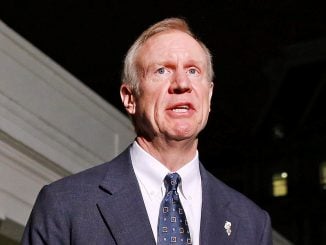RICHMOND, Va. — Virginia lawmakers gave final passage to a bill that would end the state’s outright ban on public sector collective bargaining and extend the right to local government workers if their locality opts in.
The measure marks a historic shift in traditionally business-friendly Virginia but a mixed bag for the workers and coalition of labor unions that pushed for the change.
A far more sweeping measure that passed the House would have mandated that the state and local governments bargain with workers who formed a union. But Senate Majority Leader Dick Saslaw insisted that the more conservative upper chamber wasn’t willing to go that far.
Saslaw urged the passage of legislation that was more narrow, emphasizing that nothing in the bill compels a locality to allow collective bargaining. Bargaining will be allowed only if a local government or school board authorizes it with an ordinance or by a resolution.
A few localities and local officials have publicly expressed support for collective bargaining, including the Fairfax County School Board and the Loudoun County Board of Supervisors.
Advocates of expanding collective bargaining to public workers say Virginia is one of only three states — the others being North Carolina and South Carolina — with a blanket ban. They argue that allowing public workers such as teachers, police officers and firefighters to join unions that could bargain for them in contract negotiations would give them a stronger voice not only on wages and benefits but also issues like safety and retention.
“This new law means that educators will have a seat at the table,” Jim Livingston, president of the Virginia Education Association, said in a statement. “VEA members across the state will be working their tails off to make sure their school board understands how students will benefit from contract negotiations. And what board wants to deny children an advocate?”
Critics say the process can easily be politicized if labor unions use campaign contributions to help elect officials who could then be inclined to extend a more generous contract offer. They also argue that unlike private sector bargaining, governments have fewer options, such as relocating a business, to get a union to reduce its demands.
The measure, which passed the House over the weekend, advanced out of the Senate over the opposition of Republicans.
“I think this is a very, very bad idea for the whole commonwealth of Virginia,” said GOP Sen. Mark Peake.
The changes also were opposed by business associations and many of the state’s local governments, which issued dire warnings about the costs of implementing bargaining.
Democratic Gov. Ralph Northam hasn’t taken a public position on the issue. His spokeswoman has said he will carefully review whatever legislation reaches his desk.
The issue has drawn nationwide attention. Top national union leaders registered to lobby in Virginia during the legislative session.
The American Federation of Teachers said it a statement that it “looks forward to working” with Northam, who has the ability to try to alter the legislation before it becomes law.
“All workers deserve a voice at work and the right to negotiate with their employers for better working conditions,” AFT President Randi Weingarten said.
Del. Elizabeth Guzman, who sponsored the more broad House measure, said she hoped the compromise bill could be expanded down the road after lawmakers see the benefits to employees.
“Then I can get the votes in the Senate,” she said.



